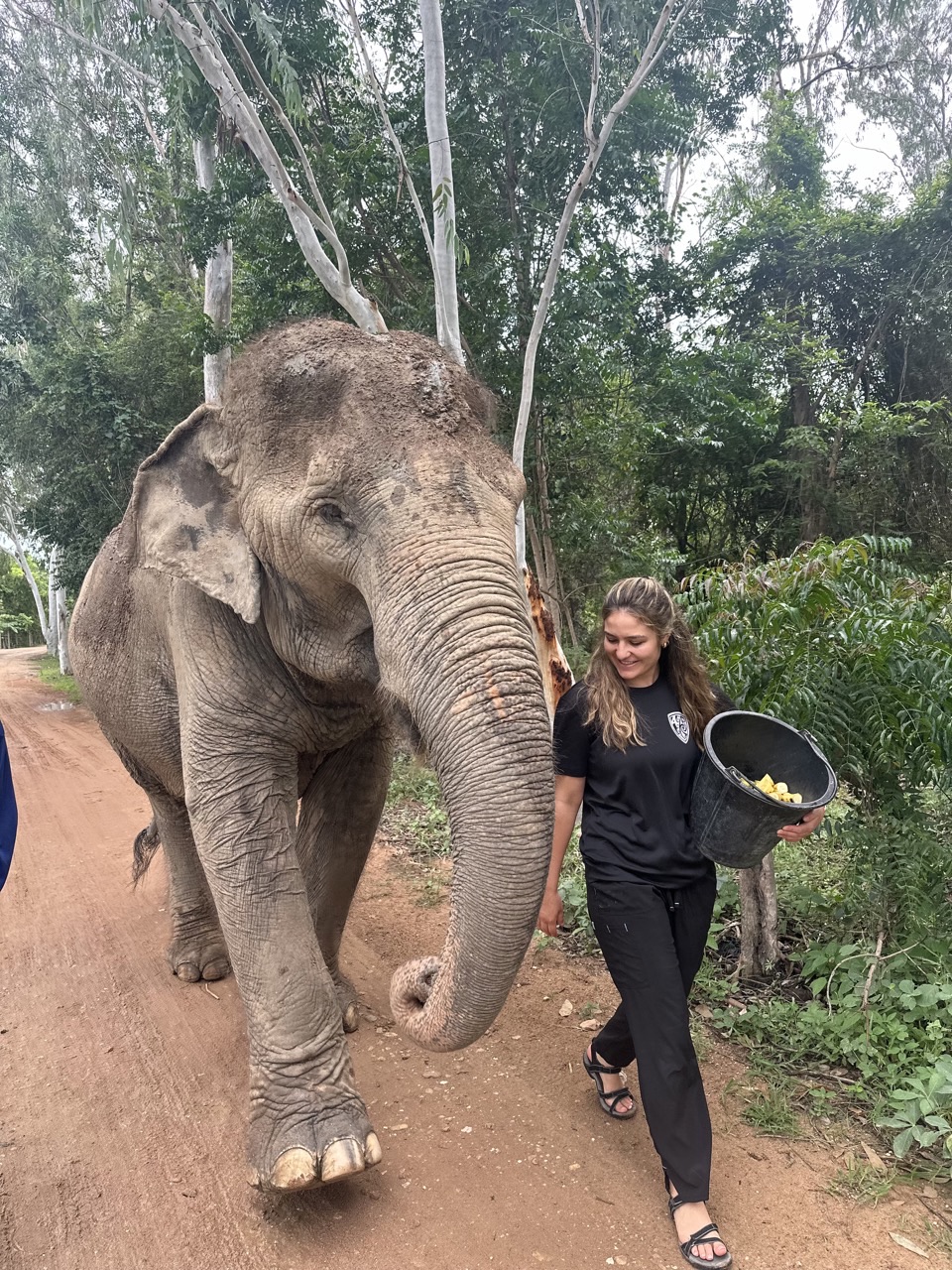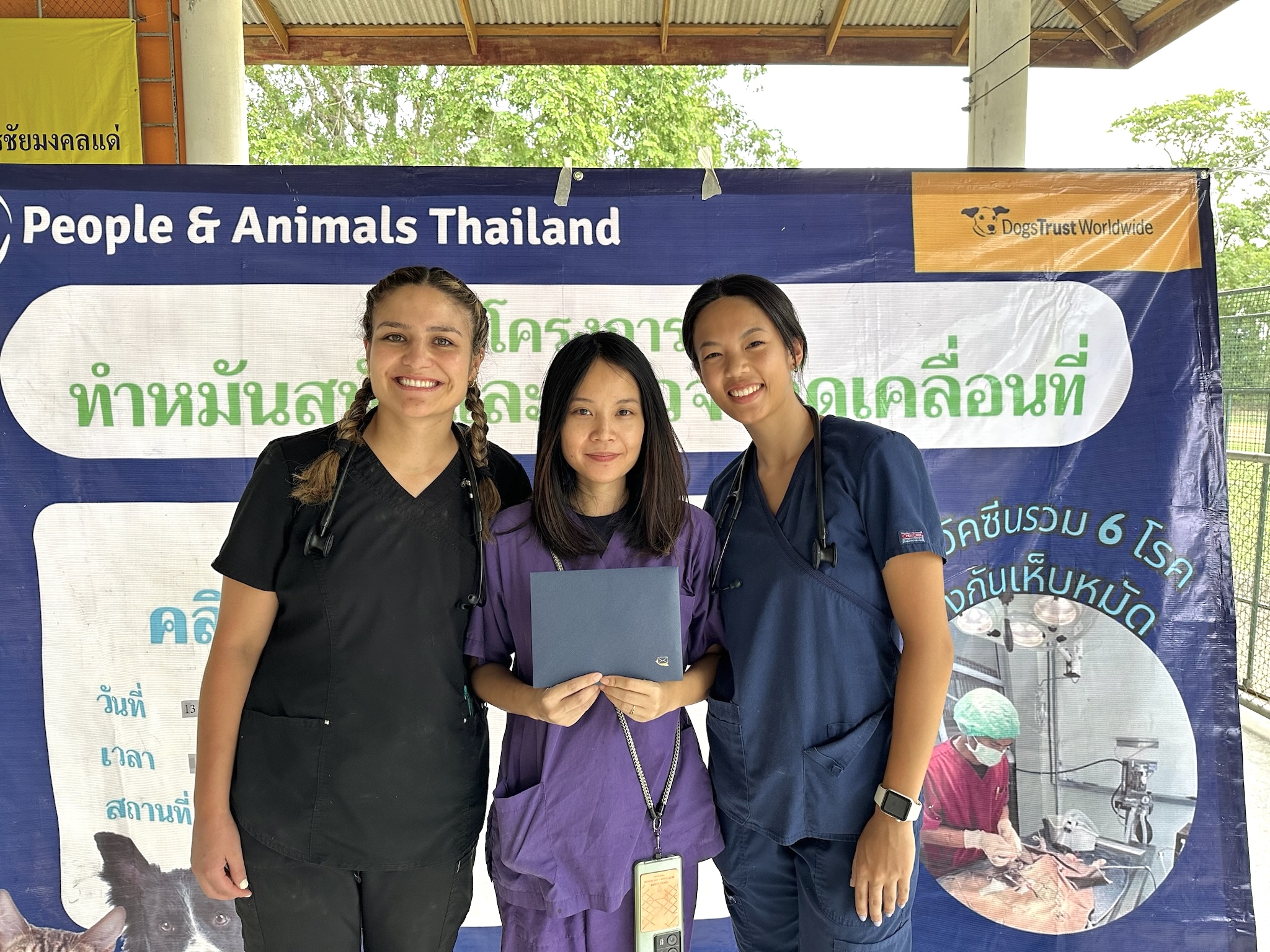Eliana Carmody - Thailand
This summer, I had the opportunity to participate in a three-week externship with the Wildlife Friends Foundation Thailand (WFFT). WFFT is dedicated to rescuing animals from unethical tourist industries and improving animal welfare throughout Thailand. This externship gave me a valuable chance to put my veterinary skills into practice while gaining insight into global animal welfare and conservation efforts.
For the first two weeks, I worked at the People and Animals Thailand (PAT) clinic in Cha-am and Hua Hin, two coastal towns in south-central Thailand. The clinic focuses on improving the welfare of stray dog and cat populations through a comprehensive trap, neuter, vaccination, and release (TNVR) protocol. I worked closely with the PAT team and had the guidance of the amazing Dr. Tukta and veterinary technicians Pod and Fair. My responsibilities involved intake assessments, TPRs, preparing patients for surgery, and performing postoperative monitoring. These tasks gave me hands-on experience with clinical skills like intubation, catheter placement, and anesthesia monitoring.

Under Dr. Tukta’s mentorship, I performed several canine neuter surgeries and a feline spay—my first experiences with surgery. In addition to the routine TNVR program, the clinic treated stray animals with various injuries and illnesses. I observed the treatment of conditions like Transmissible Venereal Tumor (TVT), wound management, and the care of a parvo and distemper survivor named Romeo. These cases provided important insights into the medical challenges facing stray animals in Thailand, as well as the country’s broader human-animal relationship. A highlight of my time at PAT was helping to run a mobile clinic at Wat Tham Suea, a local Buddhist temple, where we sterilized and treated the large population of dogs surrounding the temple.



For my third and final week, I transitioned to the WFFT Elephant Refuge in Phetchaburi, a rural region of Thailand. The refuge is home to 23 Asian elephants, all of which were rescued from unethical tourist industries such as logging and tourism. My daily tasks included preparing and feeding banana balls, harvesting banana trees, and cleaning enclosures. I also helped create enrichment activities, such as hiding fruit in puzzles, to encourage natural behaviors and stimulate the elephants. Additionally, I assisted in bathing elephants with skin infections and took them on daily walks for exercise and stimulation. Each elephant had its own unique history and care needs which meant every day was tailored to the elephants I was working with! Though physically demanding, my time at the refuge was deeply rewarding and gave me a greater understanding of elephant care and the critical role of conservation in protecting these animals. I also learned so much about the importance of education in conservation and loved working with a foundation that works very hard to share these valuable insights with the world.
Overall, this externship provided me with invaluable hands-on veterinary experience while broadening my perspective on animal welfare in a global context. From the clinical work at the PAT clinic to the daily care of rescued elephants, this experience reinforced my commitment to veterinary medicine and conservation. I am excited to apply everything I’ve learned as I move forward in my veterinary education.

